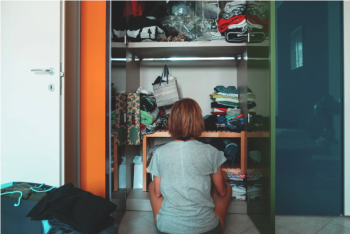How Clutter Creates Stress and Anxiety
  

Stacks of unopened mail, cluttered countertops, overstuffed closets, and those I’ll-get-to-it-later piles aren’t just household annoyances. A growing body of research links clutter at home to increased stress and anxiety — sometimes even linking clutter and depression.
Our culture teaches us that the more you own, the happier you’ll be, but it’s actually the opposite: The more you have, the less happy you tend to be.
Indeed, cluttered homes could be hampering your mental – and physical – health in a number of ways, but you may not realize it. See if these findings from four studies sound like what you’ve experienced:
Women who perceived their homes as cluttered were more likely to say they constantly felt tired and even displayed symptoms of depression. Cluttered kitchens are more likely to lead to eating too much unhealthy food. Household clutter can link to feelings of guilt, anxiousness, and an inability to focus. Cluttered work spaces at home could be making workers less satisfied with their job and leading to increased tension and even burnout.
The tipping point for problematic clutter emerges when it affects the livability of a space, causes emotional distress, and impacts your relationships and financial well-being – for instance, by contributing to overspending. In severe cases, clutter can cross over into hoarding behavior, a serious psychiatric disorder. Hoarding is generally described as the accumulation of “vertical” piles of the same thing, like stacks of toilet paper packages, whereas clutter is “horizontal,” with an overabundance of many different items.
The Institute for Challenging Disorganization offers criteria to identify whether you may have signs of what they call “chronic disorganization,” including:
Filling storage areas to capacity. Having difficulty parting with items. Needing to rent out additional storage space. Beginning multiple projects that go unfinished. Struggling constantly to find things.
One first step to dealing with your clutter is to ask these "Let Go" questions. 1) Has this item overstayed its welcome? 2) Does it fit? 3) Do I still like it? 4) Is it damaged beyond repair or even repair-worthy? 5) Do I use or wear it anymore? 6) Is it expired? 7) Is it taking up space no longer worth the real estate? 8) Has it served its purpose? 9) Is it necessary?
|